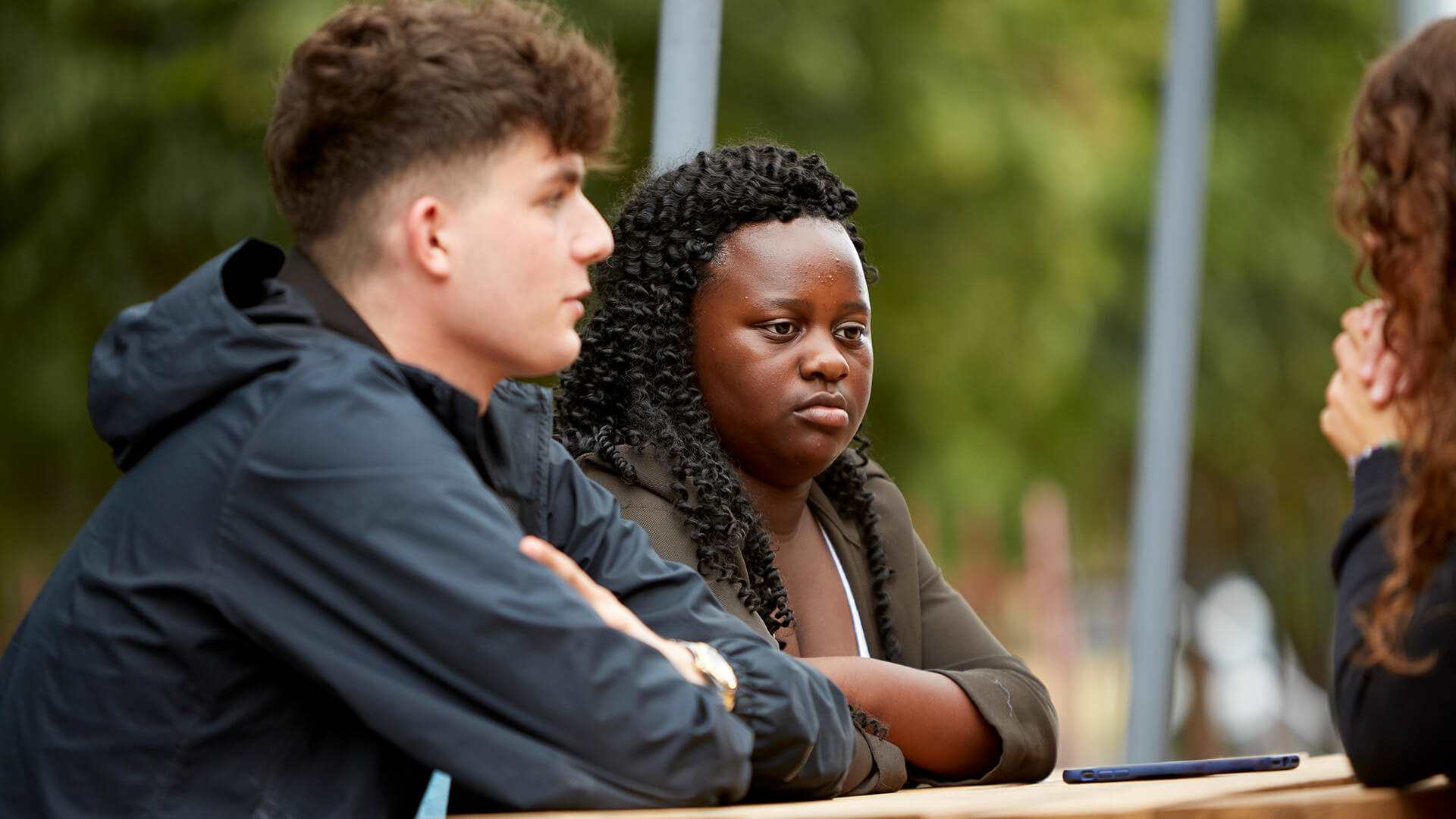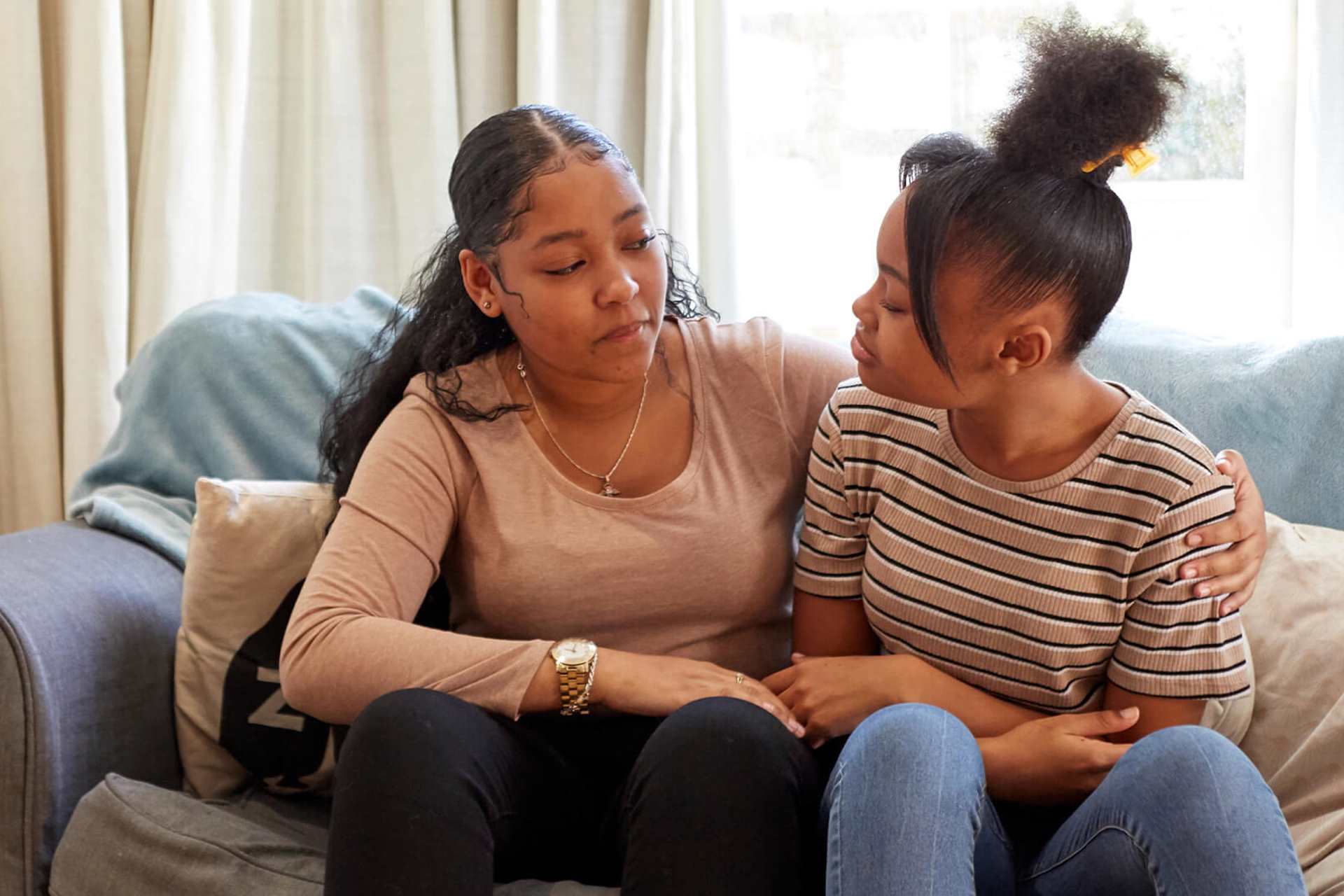Topics mentioned: disability and mental health, medication, bipolar disorder, down and unable to cope, anxiety
About: Caitlin, 20, explains what it's like to be diagnosed with chronic illness and how she's learnt to manage the fears, worries and symptoms that come with it.
It hurts to be told that you’ll be reliant on medication for the rest of your life. That a lot of your time will now be spent batting away symptoms and flare-ups.
It’s not until you’re told that you’re incurably ill that you wish to be wrong about something you’re so sure of. The wonderful relief of relaying your symptoms to someone who validates them is suddenly curbed by the clinical reality of a diagnosis. Even though it’s been helpful to know why my body and mind feel the way they do, it’s also been difficult to accept that the things that are wrong with me don’t have a quick fix or a one-size-fits-all remedy.
Gaining this sort of knowledge doesn’t feel like much of a gain at all. It hurts to be told that you’ll be reliant on medication for the rest of your life. That a lot of your time will now be spent batting away symptoms and flare-ups. That your ‘normal’ is nothing like anyone else’s.
The life you lead will be so unique that the advice given to others usually doesn’t apply to you. Instead, you’ll need a team of specialists who give you narrow, specific recommendations to ensure your quality of life. It’s not so much a new chapter as it is a forced reimagining of your own existence.
Once I found the right treatment and stuck to it, I felt less helpless than I had immediately after my diagnosis.
My past year has been shaped by my medical diagnoses. Bipolar disorder and hypermobile Ehlers-Danlos Syndrome are the two diagnoses I have been most affected by. Both conditions are marked by fluctuating symptoms which might be aggravatingly present one day and elusive the next.
Despite one being a mental illness and the other physical, I can’t help but notice how similarly they present. Because of this, I’ve learned how to find stability despite the highs and lows.
I couldn’t have done this without taking action as soon as the dust settled and my mind had finally accepted my disabilities. I gave myself the time necessary to process this life-altering information. I wanted to have a clear head when I began looking for ways to improve my circumstances.
Once I found the right treatment and stuck to it, I felt less helpless than I had immediately after my diagnosis. The insurmountable feelings of anxiety became smaller, more manageable concerns.
I feel truly self-assured. My medication and mobility aids are just things that help me lead a peaceful life, they’re not the only reason for it.
It took a while and plenty of effort, but I’m on a stable dosage of medication and happily using mobility aids. I’m living a life I never thought possible. I’ve never been more in tune with myself and my needs.
I worried that taking antipsychotics would numb or zombify me, but now I take them gleefully each night with a mug of tea. I worried that using a walking stick meant that I had given up on my body, but now I coordinate them with my outfits. The things I was frightened to embrace are now my biggest sources of stability.
I feel truly self-assured. My medication and mobility aids are just things that help me lead a peaceful life, they’re not the only reason for it. Instead of soldiering on or powering through the symptoms, I’m glad my past self taught herself how to manage the intensified ups-and-downs. Even when she was afraid and uncertain of what her future might look like, when it felt like the rug had been pulled out from under her, she sought help and treatment that made a big difference.
If you ever find yourself in a position like this, the kindest thing you can do for yourself is to be proactive in managing your health conditions.
It’s not easy to suddenly find yourself living a life which is so different from the one you’d always imagined. Yet there are ways to find peace in these new experiences. If you ever find yourself in a position like this, the kindest thing you can do for yourself is to be proactive in managing your health conditions.
It’s easy to succumb to the feeling that your life is crashing down around you and there’s little you can do to stop it, but stability is possible. The effort you put into finding peace and stability for yourself will always be worth it.
The effort you put into finding peace and stability for yourself will always be worth it.
More information and advice
We have tips and advice to help you find the support you need. Take a look at our guides.
Where to get help
However you're feeling, there are people who can help you if you are struggling. Here are some services that can support you.
-
Bipolar UK
Provides information and a peer support service for people affected by bipolar, including friends and family. Find a local support group.
-
CALM (Campaign Against Living Miserably)
Provides support to anyone aged 16+ who is feeling down and needs to talk or find information.
Free webchat service available.
Read information about the helpline and how it works.
- Opening times:
- 5pm - midnight, 365 days a year






